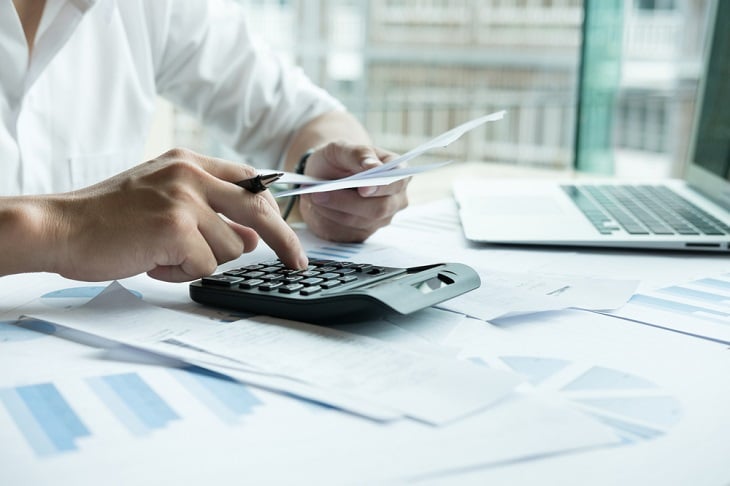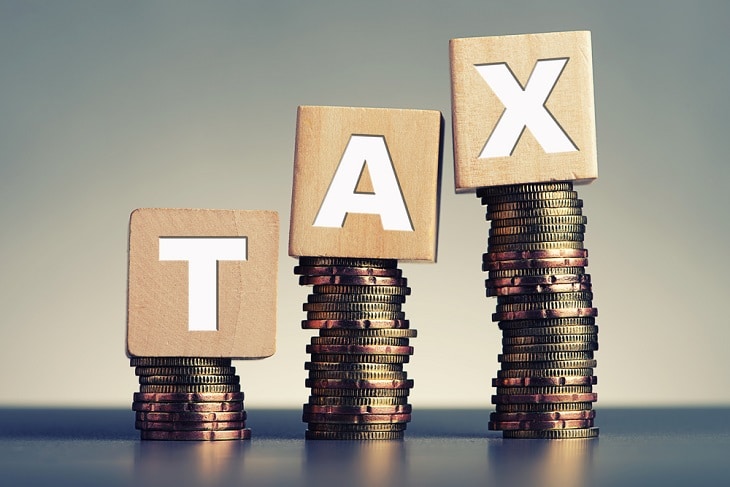Jasmine Birtles
Your money-making expert. Financial journalist, TV and radio personality.

How much tax am I owed? Am I paying too much tax? Am I paying too little tax? Will the tax office send me a big bill? How do I find out if I am on the right tax code?
Questions like these can keep us awake at night. Whether you think you’re due a tax refund, or are frightened you have a big tax bill, income tax can be very confusing. In this article, you will learn some top tips to understanding tax — and how to make it work for you.
Hundreds of thousands of people are losing money every year because of mistakes made by the tax office.
And the terrible thing is that even if they make the mistake, you are the one who is blamed. So it’s more important than ever that you do what you can to make sure your tax details are correct and that you’re not paying too much.
Actually, if you do the checks now you could find that you’ve been paying too much tax for a few years. You can claim back up to six years of overpaid tax. So you could be in for a windfall! Just follow our seven steps to tax success and you will be richer – or at least protected from nasty future bills.

Taxpayers on the wrong tax code can be overcharged, so check that your coding notice makes sense and you’ve been put in the right category. You should be able to find the code on your latest payslip.
Tax codes are made up of numbers (to tell your employer your tax-free allowance) and a letter to signify what type of taxpayer you are. The letters are as follows:
L: You’re entitled to the standard tax-free Personal Allowance of £12,500
M: Marriage Allowance: you’ve received a transfer of 10% of your partner’s Personal Allowance
N: Marriage Allowance: you’ve transferred 10% of your Personal Allowance to your partner
T: Your tax code includes other calculations to work out your Personal Allowance
0T: Your Personal Allowance has been used up, or you’ve started a new job and your employer does not have the details they need to give you a tax code
BR: All your income from this job or pension is taxed at the basic rate (usually used if you’ve got more than one job or pension)
D0: All your income from this job or pension is taxed at the higher rate (usually used if you’ve got more than one job or pension)
D1: All your income from this job or pension is taxed at the additional rate (usually used if you’ve got more than one job or pension)
NT: You’re not paying any tax on this income
S: Your income or pension is taxed using the rates in Scotland
S0T: Your Personal Allowance has been used up, or you’ve started a new job and your employer does not have the details they need to give you a tax code
SBR: All your income from this job or pension is taxed at the basic rate in Scotland (usually used if you’ve got more than one job or pension)
SD0: All your income from this job or pension is taxed at the intermediate rate in Scotland (usually used if you’ve got more than one job or pension)
SD1: All your income from this job or pension is taxed at the higher rate in Scotland (usually used if you’ve got more than one job or pension)
SD2: All your income from this job or pension is taxed at the top rate in Scotland (usually used if you’ve got more than one job or pension)
C: Your income or pension is taxed using the rates in Wales
C0T: Your Personal Allowance has been used up, or you’ve started a new job and your employer does not have the details they need to give you a tax code
CBR: All your income from this job or pension is taxed at the basic rate in Wales (usually used if you’ve got more than one job or pension)
CD0: All your income from this job or pension is taxed at the higher rate in Wales (usually used if you’ve got more than one job or pension)
CD1: All your income from this job or pension is taxed at the additional rate in Wales (usually used if you’ve got more than one job or pension)
To calculate your code, HMRC also deducts the value of your benefits from your personal allowance. So make sure they’ve included any taxable benefits you get at work like a company car or private medical insurance. If they haven’t included those now then you could find yourself slapped with an extra tax bill in a year or so when they suddenly realise that you owe them.
If your tax code has ‘W1’ or ‘M1’ at the end, it means you are on an emergency tax code — and will likely be paying too much tax.
If your tax code has a ‘K’ at the beginning it means you have income that is not being taxed another way and it’s worth more than your tax-free allowance.
Your personal allowance shows how much income you can receive from earnings, pensions and savings before paying tax. For this tax year, which runs from 6 April 2019 to 5 April 2020, it is £12,500. The basic rate tax of 20% is charged on money earned between £12,501 to £50,000. Income between £50,001 and £150,000 is charged at the higher rate of 40%. Income over £150,000 is charged at the additional rate of 45%
Married Couple’s Allowance could reduce your tax bill by between £345 and £891.50 a year. You can claim Married Couple’s Allowance if you’re married or in a civil partnership, you’re living with your spouse or civil partner, or one of you was born before 6 April 1935
For marriages before 5 December 2005, the husband’s income is used to work out Married Couple’s Allowance. For marriage and civil partnerships after this date, it’s the income of the highest earner.
If you’ve earned less than your allowance in a tax year but you’ve still been taxed, contact your HM Revenue & Customs (HMRC) office to claim a rebate.

If you have more than one source of income, such as two part-time jobs for example, there may be two tax offices dealing with them. It’s quite possible that they don’t talk to each other and each has no idea about your other income. This means that you could either be being taxed twice or not at all.
Obviously, if you’ve been taxed twice then you’re owed money! Go get it – contact both tax offices and get them to sort it out between them. Sadly, if you haven’t been taxed at all, that doesn’t mean you can get away with it. It probably means that in a few years’ time you will get a big bill for the unpaid amount, so get it sorted now to avoid that shock.
Savings interest (the interest you get from savings accounts, bank accounts, building society accounts etc) is taxed at 20%.
BUT…
…for most of us now, we don’t have to pay any tax on savings interest because the government now allows us to keep the first £1,000 of savings interest tax-free!
Given that most savings accounts offer no more than 1% interest per year, you would have to have at least £100,000 in average savings accounts to make that amount.
Now of course, being a Money Magpie you probably have squillions put away, but…well, for most of us, that’s not very likely.
So when it comes to bothering about tax on your savings, you can pretty much rest easy.
Now, if you are a higher rate taxpayer (i.e. you earn enough to go into the 40% income tax band) you can only make £500 interest-free on your savings. So it’s a bit more to consider.
So given that you can put away a LOT of money, tax-free in savings accounts now, it makes a Cash ISA even less worthwhile than before.
As you know, we at MoneyMagpie,com favour stocks and shares ISAs anyway, but that’s even more the case now. There really is no point putting your hard-earned into a Cash ISA that will earn you very little when you could put it into a good, long-term investment like an index-tracking fund, wrapped in an ISA.
Find out why stocks and shares ISAs are the best and how to invest in them here.
The tax office has the wrong address for thousands of people so if you haven’t heard from them for over a year, get in touch and make sure they have your current address. There are two reasons why you should do this:
So check, re-check and check again that your tax code, your self-assessment form and all the details about you and your tax situation are right. Do ring up HMRC as often as you like to get them to help. Generally they are very helpful if you are genuine and respectful. Make sure you make a note of phone calls, when they were made, what was said etc, if your situation is a bit complicated. Ideally, follow up phone calls with a letter. Keep a paper trail. If things get really difficult then it is worth hiring an accountant to take over your affairs and argue your case with HMRC.
If you are in dispute with HMRC and you believe you are right then persist, persist and persist again. Generally, if you demonstrate that you’re not willing to back down and will argue your case to the end they will concede. So if you truly believe you are right, stick to your guns!


I have claimed back tax in the past. Definitely worth checking.
I would kiss you if i could, you have done me a big favor thanks and God bless you. maybe you could shade abit of light to this i am confused. If i got a bill from the HMRC saying ( Plus other adjustments ) underpayment £607 whats that suppose to mean?
Awesome content Jasmine – thanks for a very helpful post. It’s frightening just how many incorrect PAYE coding notices get sent out by HMRC each year. Taking responsibility and checking your tax code has never been more important….